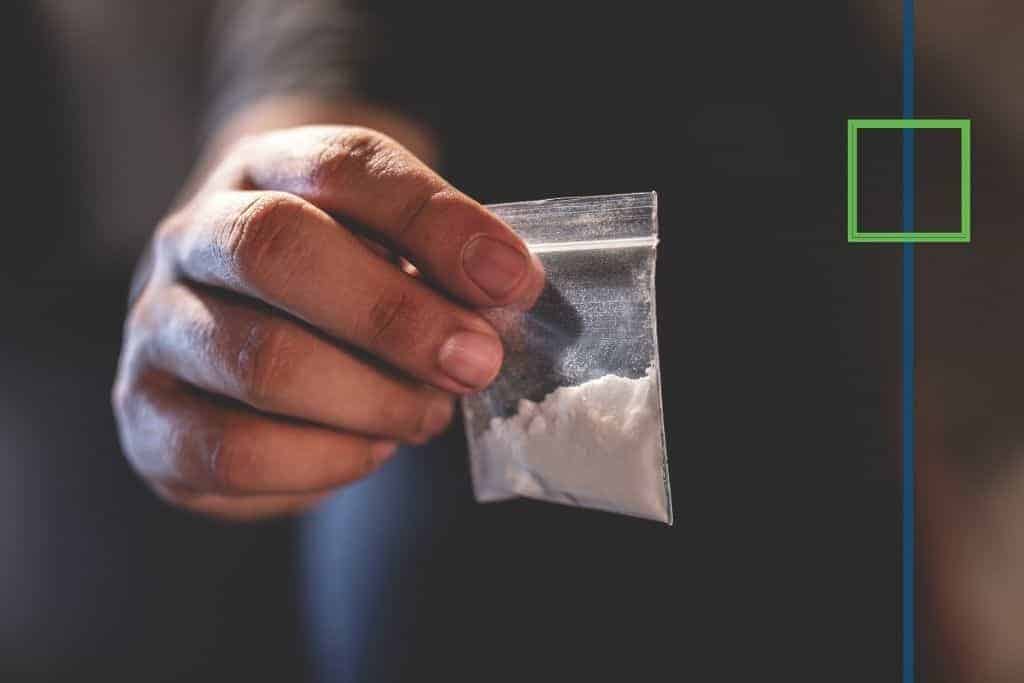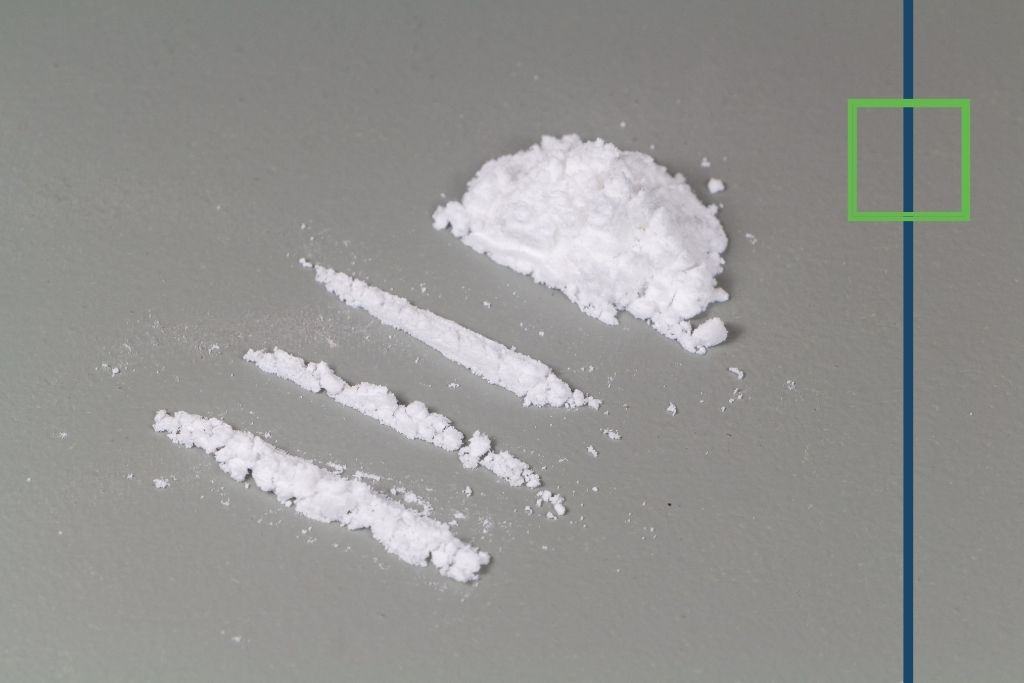Myths About Cocaine
Cocaine is a natural stimulant produced by the coca plant. Unfortunately, there have been many myths about cocaine since it gained popularity in the 1980s. Movies and television often perpetuate these myths. Clearing up these cocaine myths is very important if you want to understand the danger you are in when you use cocaine.
Cocaine is a severely addictive stimulant drug made from the leaves of the coca plant. It increases the natural chemical messenger (dopamine) levels in brain circuits related to the control of movement and reward. Cocaine comes in a few different forms [1]. The most common is a fine, white powder. It can also be made into a solid rock crystal. What is the difference between crack cocaine and cocaine?
No matter how much cocaine is taken, it is dangerous. Some of the most common serious effects of cocaine include heart attack and stroke. It’s just as dangerous to snort cocaine as it is to smoke it or inject it. A cocaine habit costs a lot of money. Cocaine use often looks glamorous in TV shows and in the movies. But cocaine addiction often causes people to lose their jobs, their families, their homes, and their reputation. Learn the interesting facts about cocaine and the signs of a cocaine overdose.

Cocaine is a highly addictive illegal drug used by 14-21 million people worldwide [3]. In 2018 there are 874,000 new cocaine users [4]. Since cocaine is combined or ‘cut’ with other chemicals, people have no idea if the dose will be weak or strong. These other chemicals may include fillers, such as paint chemicals, cornstarch, fentanyl, and its analogs, which are added purely to boost profits and often lead to the risk of cocaine perforated septum and cocaine and erectile dysfunction.

Get Your Life Back
Find Hope & Recovery. Get Safe Comfortable Detox, Addiction Rehab & Dual Diagnosis High-Quality Care.
Hotline(844) 597-1011Cocaine Myth #1: It Takes a Long Time to Get Hooked on Cocaine
One of the most widespread cocaine myths is that it does not create addiction. Cocaine addiction develops very quickly. That’s because repeated use causes tolerance fast. When someone uses cocaine, their body and brain are less sensitive to it the next time. That loss of sensitivity is tolerance, and with cocaine, it starts within a single use.
That leads to using cocaine more often and in higher doses from the very start. Many individuals use cocaine every 15 to 30 minutes.
It takes only a day of that kind of frequent use to cause cocaine addiction. With crack cocaine, it’s possible to develop addiction even faster, after a single use.
Cocaine sends intense signals to the pleasure centers of the brain, which leads to increased alertness and a “high” feeling. Cocaine use can alter the brain after just one use, and regular use can lead to intense cravings, withdrawal, and neurological changes.
Cocaine Myth #2: Cocaine is a Safe Drug
Another widespread cocaine myth is that it is a safe drug. Cocaine use contributes to tens of thousands of emergency department (ED) visits and hundreds of deaths each year [2]. While cocaine use is coincident in most cases, (e.g. trauma, psychiatric, or infections), cocaine poisoning accounts for many of these visits. The major effects of cocaine poisoning include CNS effects such as agitation, seizures, and psychosis, and cardiovascular effects such as dysrhythmias, myocardial infarction, and cardiovascular collapse.
The total overdose deaths involving cocaine have increased from 1999 to 2019. Cocaine overdose may also be involved with other drugs such as opioids. Cocaine overdose also results in a substantial amount of ER visits each year. Many of these ER visits were from people experiencing severe chest pain, which is one of the main signs and risks of a cocaine overdose. Serious consequences can result if proper cocaine overdose treatment isn’t provided. This danger is why quick treatment in these situations is essential.
Cocaine Myth #3: Cocaine Has No Side Effects
One popular cocaine myth is that it has no side effects. Cocaine isn’t safe, even in small amounts. Even a single dose of cocaine has effects on your health. In the short term, using cocaine causes:
- Fever
- High blood pressure
- Rapid heart rate
- Vascular dilation, or shrinkage of your blood vessels
These effects are hard on your heart and blood vessels. Cocaine can also have effects on your brain, like seizures, after a single, moderate use.
Even if you don’t die from an overdose, you can experience permanent long-term health effects from cocaine use, including:
- Cognitive changes
- Heart disease
- Gastrointestinal disease
- Vascular disease

Cocaine Myth #4: Cocaine Makes You a Better Athlete or Worker
Chronic use of cocaine can seriously harm your body and your athletic performance. It can also cost you your job. It’s true that this stimulant can give some people lots of motivation and energy, but that doesn’t translate to work performance. In fact, cocaine is likely to hinder your work performance, and not make you better at work.
That’s because using cocaine causes cognitive problems that can affect your executive function. Executive function is your ability to reason, make plans, and follow through on them. And it’s critical for work since cocaine use can make you overestimate your abilities and performance, which can backfire when you think you are doing better than you really are.
Using cocaine to get through work can backfire by causing:
- Long-term memory loss
- Attention problems
- Trouble focusing
- Working memory loss
- Trouble with decision-making
- Trouble assessing risk
Get Help. Get Better. Get Your Life Back.
Searching for Accredited Drug and Alcohol Rehab Centers Near You?
Even if you have failed previously and relapsed, or are in the middle of a difficult crisis, we stand ready to support you. Our trusted behavioral health specialists will not give up on you. When you feel ready or just want someone to speak to about therapy alternatives to change your life call us. Even if we cannot assist you, we will lead you to wherever you can get support. There is no obligation. Call our hotline today.
(844) 597-1011Cocaine Myth #5: Cocaine Makes Sex Better
Cocaine has a reputation as a sex enhancer. It’s true that cocaine increases your sex drive, but that doesn’t actually mean it makes sex better. In fact, cocaine can hamper sex by causing sexual performance problems. This is true in both men and women. Cocaine is also linked to riskier sexual behavior, including unprotected sex.
There is a strong link between cocaine and erectile dysfunction. Erectile dysfunction (ED), formerly termed impotence, is a widespread condition in males over 40 years of age all over the world. Thirty to 36% of cocaine abusers reported erectile dysfunction. Cocaine is a potent dopamine agonist, and chronic cocaine abuse may result in hyperprolactinemia or a dopamine deficiency with sexual dysfunction.
Cocaine Myth #6: Snorting Cocaine Isn’t As Dangerous As Injecting It
Cocaine can be snorted, injected, and smoked, but no matter how it is administered, cocaine can have serious side effects on a person’s health. Snorting cocaine can also lead to problems specifically with the nasal passage and airways.
One of the most significant long-term effects of snorting cocaine is the damage to the nose. A septal perforation or a “cocaine perforated septum” is a condition that is commonly caused by sniffing or snorting cocaine through the nose.
This preference for insufflation exposes the nasal mucosa to the intense vasoconstrictive effects of cocaine and the myriad of caustic additives with which it is often mixed, thus causing varying degrees of damage to the nasal tract.
Cocaine Myth #7: There Is No Crash With Cocaine
Many people mistakenly believe that cocaine withdrawal isn’t that bad. While the symptoms may not be as severe as with opioids, you can still experience some uncomfortable side effects including sweating, nausea, depression, and anxiety during cocaine detox and withdrawal. Especially if the cocaine is cut with other substances, there is a higher chance that you will experience some negative aftermath.
One of the most pronounced and typical effects of cocaine withdrawal is depression. This mental illness may arise because long-term cocaine use causes key neurotransmitters to dwindle to chronically low levels, because using cocaine damages cells in the brain’s pleasure center. A cocaine crash can occur after sustained periods of heavy cocaine use. People that want to safely detox from cocaine drug use can enroll in a drug treatment program.

First-class Facilities & Amenities
World-class High-Quality Addiction & Mental Health Rehabilitation Treatment
Rehab Centers TourRenowned Addiction Centers. Serene Private Facilities. Inpatient rehab programs vary.
Addiction Helpline(844) 597-1011Proven recovery success experience, backed by a Team w/ History of:
15+
Years of Unified Experience
100s
5-Star Reviews Across Our Centers
10K
Recovery Success Stories Across Our Network
- Low Patient to Therapist Ratio
- Onsite Medical Detox Center
- Comprehensive Dual-Diagnosis Treatment
- Complimentary Family & Alumni Programs
- Coaching, Recovery & Personal Development Events
Cocaine Myth #8: Cocaine Highs Are Easy To Hide
It’s not that easy to hide the signs of cocaine use. When you use cocaine, the signs of being high include:
- Agitated behavior
- Euphoria
- Increased energy, including a need to move
- Increased sexuality
- Increased focus
- Sweating
- Sense of confidence
The signs of cocaine addiction aren’t easy to hide, either. With addiction, you’ll start using cocaine many times in a day for days on end, which can get you caught fast.
Cocaine Myth #9: Cocaine is for the Rich
Cocaine is addictive to everyone. Most of the people addicted to purer forms of cocaine are wealthy and can afford the purity. Most of the people addicted to adulterated forms of cocaine such as crack cocaine are not wealthy. The more impurities, the cheaper the drug.
Cocaine Myth #10: Cocaine Highs Can Last For Days
You may hear people talk about staying awake on cocaine for days and wonder “how long does a cocaine high last?” The average cocaine high only lasts 15 to 30 minutes. But the reality is, in that situation, the person using cocaine is re-dosing over a long period of time. This is known as a cocaine binge.
World-class, Accredited, 5-Star Reviewed, Effective Addiction & Mental Health Programs. Complete Behavioral Health Inpatient Rehab, Detox plus Co-occuring Disorders Therapy.
CALL(844) 597-1011End the Addiction Pain. End the Emotional Rollercoaster. Get Your Life Back. Start Drug, Alcohol & Dual Diagnosis Mental Health Treatment Now. Get Free No-obligation Guidance by Substance Abuse Specialists Who Understand Addiction & Mental Health Recovery & Know How to Help.
Cocaine Addiction Treatment Near Me
First and foremost, if you think that a loved one is abusing cocaine, you should first research the drug and addiction associated with it so that you can better understand what your loved one needs. Next, you must plan an intervention to provide your loved ones with options to battle their addiction in a safe and supportive environment. During this intervention, make sure that you offer compassion and support instead of judgment. Lastly, offer your support throughout the entire treatment process.
In addition, prolonged Cocaine use can have severe physical and psychological effects, so it is essential to seek treatment as soon as possible. Inpatient drug rehab offers intensive care that can help you get through the early stages of withdrawal promptly. There are several myths about cocaine and other drugs, but no matter the substance, abusing these drugs is dangerous.
Medically-Assisted Detox
Detox is often considered the first stage of treatment. It will help you navigate the complicated process of withdrawal, but it doesn’t address patterns of thought and behavior that contribute to drug use. Various treatment approaches and settings can help provide the ongoing support necessary to maintain long-term sobriety after you complete detox.
Cravings are very common during detox and can be challenging to overcome. This often leads to relapse. Constant medical care provided during inpatient treatment helps prevent relapse. Clinicians can provide necessary medication and medical expertise to lessen cravings and the effects of withdrawals.
Psychotherapy
Several different modalities of psychotherapy have been used in the treatment of mental health disorders along with addiction, including:
- Cognitive Behavioral Therapy (CBT) – is an effective treatment that involves making changes in both the patterns of negative thoughts and the behavioral routines which are affecting the daily life of the depressed person for various forms of depression.
- Dialectical Behavior Therapy – is a comprehensive mental health and substance abuse treatment program whose ultimate goal is to aid patients in their efforts to build a life worth living. The main goal of DBT is to help a person develop what is referred to as a “clear mind.”
- Person-Centered Therapy – is a strategy that allows and encourages clients to understand and resolve their concerns in a safe, supportive environment.
- Solution Focused Therapy – is an approach interested in solutions that can be quickly implemented with a simple first step leading to further positive consequences.
Dual Diagnosis Treatment
Drug abuse and mental health disorders often co-occur. In many cases, traumatic experiences can result in a mental health disorder and substance abuse. Dual diagnosis rehabilitation treats both of these issues together. The best approach for the treatment of dual diagnosis is an integrated system. In this strategy, both the substance abuse problem and the mental disorder are treated simultaneously. Regardless of which diagnosis (mental health or substance abuse problem) came first, long-term recovery will depend largely on the treatment for both disorders done by the same team or provider.
Medication-Assisted Treatments
Medication-Assisted Treatments (MAT) for substance use disorders and mental health disorders are commonly used in conjunction with one another. This includes the use of medications and other medical procedures. During your rehab, the staff from your treatment facility will help you identify what caused your addiction and teach you skills that will help you change your behavior patterns and challenge the negative thoughts that led to your addiction. Sometimes, the pressures and problems in your life lead you to rely on substances to help you forget about them momentarily.
Please, do not try to detox on your own. The detox process can be painful and difficult without medical assistance. However, getting through the detox process is crucial for continued treatment. We Level Up provide proper care with round-the-clock medical staff to medically assist your recovery. So, reclaim your life, and call us to speak with one of our treatment specialists. Our counselors know what you are going through and will answer any of your questions.

Experience Transformative Recovery at We Level Up Treatment Centers.
See our authentic success stories. Get inspired. Get the help you deserve.
Start a New Life
Begin with a free call to an addiction & behavioral health treatment advisor. Learn more about our dual-diagnosis programs. The We Level Up Treatment Center Network delivers recovery programs that vary by each treatment facility. Call to learn more.
- Personalized Care
- Caring Accountable Staff
- World-class Amenities
- Licensed & Accredited
- Renowned w/ 100s 5-Star Reviews
We’ll Call You
Sources:
[1] NCBI – https://www.ncbi.nlm.nih.gov/books/NBK430976/
[2] NCBI – https://www.ncbi.nlm.nih.gov/pmc/articles/PMC2703432/
[3] Cocaine Overdose – We Level Up NJ





